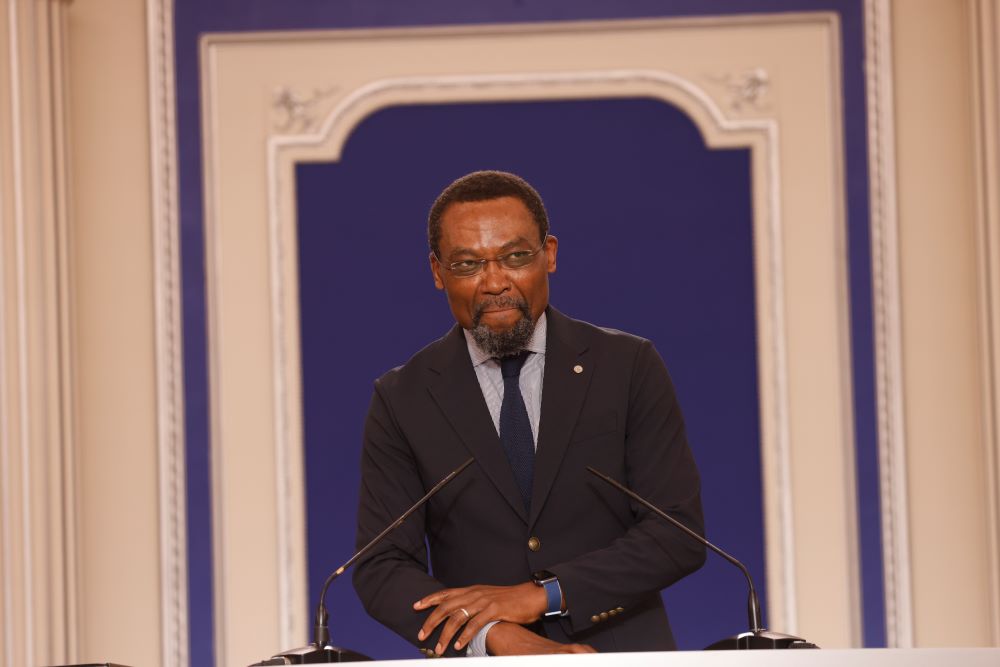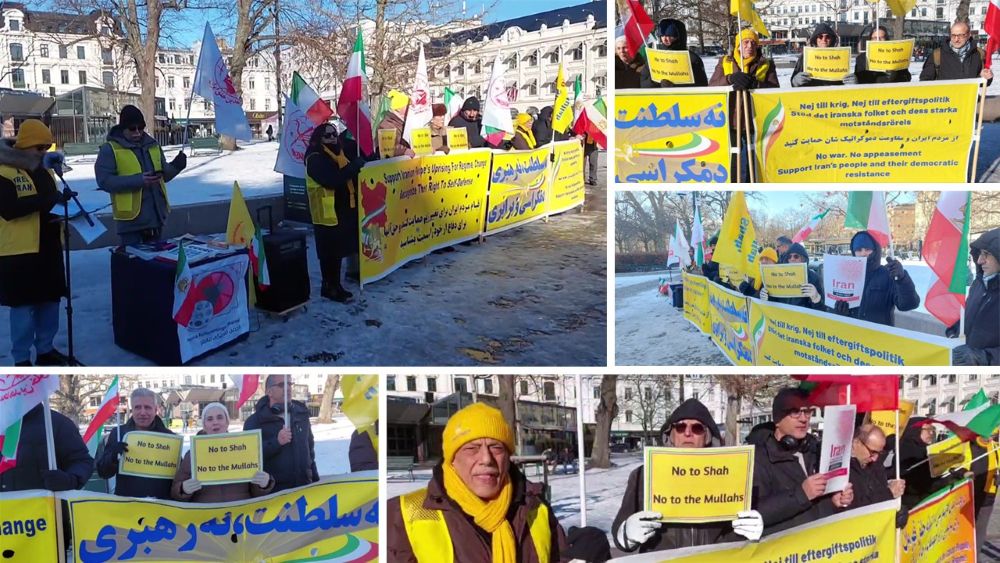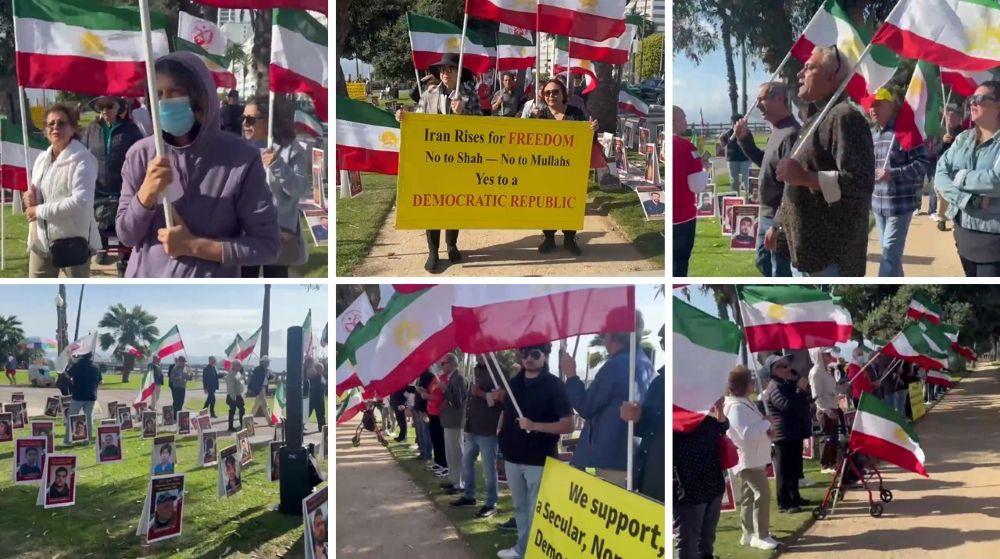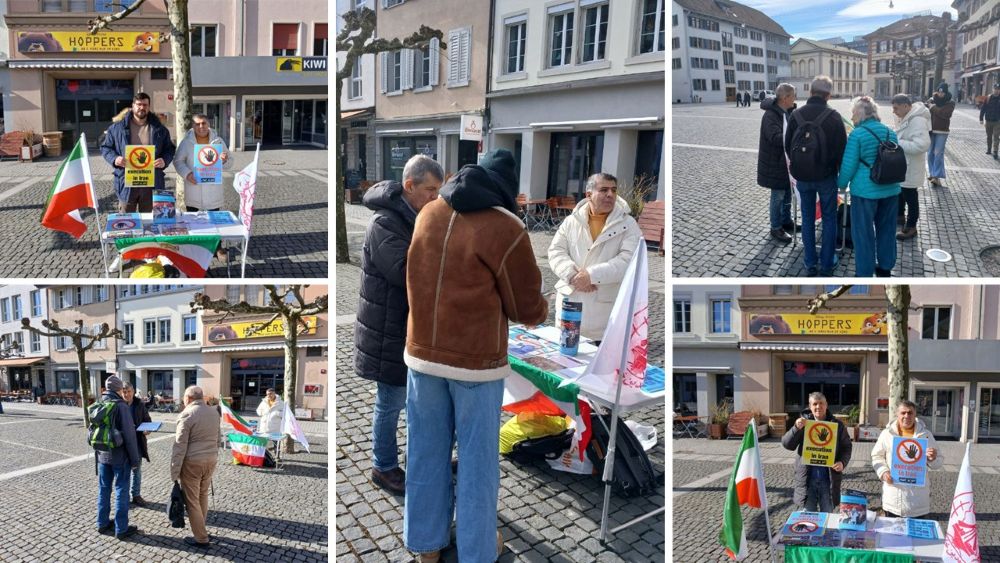
On August 24, at an international conference addressing human rights violations in Iran, Dr. Chile Eboe-Osuji, former President of the International Criminal Court (ICC), emphasized the critical need for accountability for the atrocity crimes committed by the Iranian regime.
Dr. Eboe-Osuji discussed the development of international law since the early 20th century, underscoring that modern legal frameworks do not shield state leaders from responsibility for crimes like genocide and crimes against humanity. He cited Professor Javaid Rehman’s report, which suggests that the 1988 mass executions could be considered genocidal, affirming that this is a credible perspective worthy of further exploration and debate within the international community.
The former Legal Advisor to the United Nations High Commissioner for Human Rights also highlighted the role of the ICC and other international bodies in holding perpetrators accountable, particularly when such crimes target individuals in member states like Albania and France, where many PMOI/MEK activists are based. He emphasized the importance of international cooperation to ensure justice and prevent impunity for those responsible for grave human rights violations.
Dr. Eboe-Osuji concluded by praising Professor Rehman’s efforts to spotlight these critical issues, urging the global community to remain vigilant and take decisive action to address and rectify these violations.
The full text of Dr. Eboe-Osuji’s speech follows:
Thank you very much, ladies and gentlemen.
Good afternoon. The conference, the theme of the conference is, “Iran, Accountability for Atrocity Crimes,” And in the subtext of the conference theme, we see also a repeat of the word accountability and also time to end impunity.
Now on the 20th of November 1918, that’s 106 years ago after the end of the First World War, there was a meeting being held in the cabinet of the British government. The prime minister of the UK at the time, David Lloyd George, was presiding over the meeting and an agenda for discussion was what to do about accountability. Many people around the world, especially Europe which was devastated by the First World War wanted accountability. Specifically, they wanted to try the Kaiser, the German emperor.
An all-powerful man at the time, certainly before the First World War, he was one of the world’s most powerful men, certainly Europe’s continental Europe’s most powerful men. So, the question was, well, David Lloyd George’s government, as well as the government of France led by then Premier George Clemenceau, wanted to have him prosecuted. But there was no precedent in international law for holding world leaders accountable for atrocity crimes at the time, let alone setting up an international tribunal to do the trial.
4-The conference featured an impressive lineup of international experts, including:
Professor Chile Eboe-Osuji, former President of the International Criminal Court (ICC)
Professor Leila Sadat, former Special Adviser on Crimes Against Humanity to the ICC Prosecutor pic.twitter.com/CPWsG6m25U— Iran Freedom (@4FreedominIran) August 27, 2024
So, the question that David Lloyd George and his cabinet colleagues were debating was what to do? We do want this thing to happen, but there is no international law that supports the proposition.
In the meantime, in France, the same conversation was happening and David Lloyd George was told in his cabinet that that discussion was happening in France, in Paris, and that the Premier Clemenceau suggested I want to see the Kaiser tried. Remember the significance of the Kaiser the Kaiser here was a head of state, the most powerful man in Europe at the time. We want to see him tried, say Clemenceau, but because we are not sure what international law position is on it, Clemenceau said, I have tasked some leading French experts to study the question.
So that was a report that was given to the cabinet of David Lloyd George on the 20th of November 1918.
Lloyd George said, well, I too want to see the Kaiser tried, about international law. We are making international law. And all we want is for each are the needs of justice. The significance of that, you may be wondering why is he telling this story. The significance of that is that we are making international law, and we want to see it serve the needs of justice.
The point was that it was leaders of state that made international law. That was what David Lloyd George was saying. And he signaled from then on that he, from England, and Clemenceau from France were determined to change international law so that leaders of states, the most powerful leaders of states can be held accountable when they are accused of international crimes, and they’ll be held accountable before a judicial inquiry made up of a panel of independent judges who will review the evidence and decide whether or not the accused person was guilty of a crime as charged.
Now, it’s timely that we are holding this conference today because, in 7 weeks, there’s a book I’ve written on this subject. As I said, it’s timely. I didn’t plan my book to have this conference and talk about the book. But in 7 weeks, there’s a book, I’ve written on it called “End Of Immunity” that we published. And I tell the story of it’s on there.
I tell that story in how it is that international law from 1919 till now has changed so as to say international law no longer recognizes the idea that anybody is above the law because they are heads of state.
That debate happened, as I said, it was a non-starter of a discussion before 1918. You didn’t even talk about it. It was off the table for discussion. But from 1918, 1919, two heads of government, 1 in the UK and 1 in France decided to change that story.
And that story was effectively changed when at the end of the Second World War, we had trials, we’re called the Nuremberg trials, and we had a document that’s called the Charter of Nuremberg. Basically, the instrument under which the Nuremberg tribunal was organized. That instrument, the charter of the Nuremberg tribunal in article 7 made it clear that heads of states no longer enjoy immunity. The people will be held accountable. And on the basis of that, we had the Nuremberg tribunal that tried all the surviving leaders of the Third Reich of the Nazi regime. All of them to try.
Though the essence of when I said all the surviving leaders was because Hitler committed suicide just as the war was ending. But the organization to try all the surviving leaders had him in mind as the first person to be tried, but he couldn’t be tried because he committed suicide.
What did the Nuremberg tribunal do next? They tried Grand Admiral Donitz. Donitz was the guy who took over as head of state of Germany from Hitler after Hitler committed suicide. Donitz was tried by the Nuremberg trial. In other words, the head of state tried and everybody else. So, the point of that is that was the beginning of the story of the end of immunity for heads of state, for leaders of government.
The same trial happened in the Far East in Tokyo where, again, with the exception of the emperor of Japan during the war, Emperor Hirohito, who was the only one not tried, all the surviving leadership of the Japanese Imperial Cabinet during the war were put to trial and tried for, war crimes that were held accountable for.
So again, that is the beginning of the end in the essence of immunity and the Rwanda Tribunal, you know, where I worked as a prosecutor, also tried everybody, senior leaders of that government. I happen to have had the, whatever I want to call it, honor or whatever of being a trial team leader of Colonel Bagasura.
Colonel Bagasura was a gentleman who was an effective leader of Rwanda during the Rwandan genocide. He was put on trial, and so was the Prime Minister of Rwanda at the time. You also know the story of the leader of Serbia Milosevic who was also tried. You know the story of Charles Taylor, the President of Liberia who was tried before the special court for Sierra Leone.
So, the point I make with that is as of today, as we are standing here, international law does not recognize that anybody enjoys immunity because of the position they hold in any government. Be that president, prime minister, or whatever.
So, people who commit crimes or atrocities, thinking that they are protected by their office are making a very serious miscalculation in that regard. Now, I moved to another I know we had to use the podium for other colleagues.
Two more points I make and I’ll leave you. The second point I’d like to make is the idea or a debate that we also hear in the corridors of international relations. That has to do with when you have a tribunal that has been set up under a treaty, an international agreement, some people tend to think, well, because we are not a party to that treaty, that international agreement that set up this tribunal.
Because we are not a party to it, we did not sign it. What they do does not concern us. They cannot exercise jurisdiction over us. Again, that is a very, very serious mistake for anybody to make.
I cannot begin to explain the nitty gritty, the details of international law that make it a serious mistake. But I can say this for now: Relation to the ICC, for example, specifically, that debate comes up a lot. Now, one short circuit, one way to get to the conclusions I’m trying to get at here is this.
The ICC is made up of 124 states parties, including all of Europe and Western Europe in particular, as well as well as most of Eastern Europe. We know that France is a prominent member of the ICC. Albania is a member of the ICC.
Why is this important? Why do I talk about Albania? Why do I talk about France? Some of you might already have figured it out because this is where some of the activists of the MEK/PMOI are, where they live.
Now the construct of international law and the Rome Statute in particular gives ICC jurisdiction over crimes that happen in member states of the Rome’s statute. So if an international crime, crime against humanity is committed in Albania, the ICC would have jurisdiction if Albania doesn’t prosecute, or investigate.
If a crime against humanity is committed in France, the ICC would have jurisdiction if France doesn’t prosecute or investigate. The point then becomes any attack or violation of the rights of the members of MEK in those countries to the point that the violation of mass international criminal law, or international crime will be subject to something that ICC will have jurisdiction over. So that’s the second point I want to make.
The third point and I’ll leave you is, that Professor Rehman has done a magnificent job in his tenure as the Special Rapporteur as was observed earlier, he had lifted the veil of silence on the discussion around what happened in 1988 in Iran and later.
And his research and his, writings, his reports have now given members of the international community the authority, the license to discuss these questions and what needs to be done about them. So, he deserves credit for tonight. I give it to him.
One of the points he makes in his last report, is that which some scholars will get into an argument about. And I’ll give you in a minute what that is. What he said that what happened in 1988, can be characterized as genocide. Some people have debated that question.
Now my own view on the matter is that that is a very reasonable and credible analysis to make. It is possible to characterize that event as a genocide. I don’t have the time to explain why now. So, I thank you and leave you.



